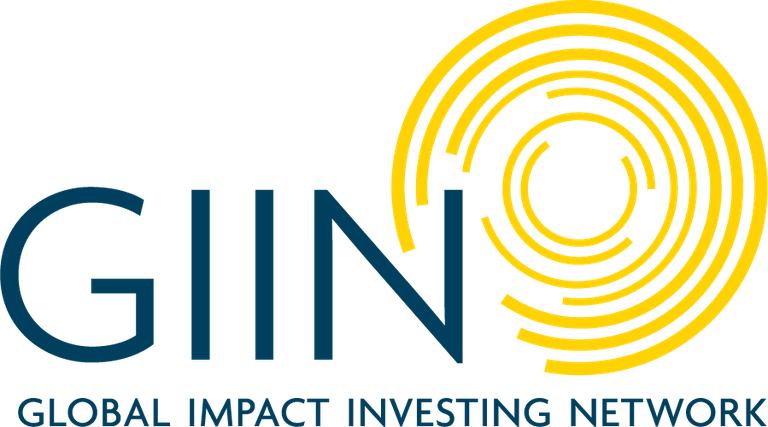Topic of the month July 2020: A Changed Vision of Investment Success for a Changed World
A Changed Vision of Investment Success for a Changed World
By Amit Bouri, Co-Founder & CEO of the Global Impact Investing Network (GIIN)
When the history books are written, 2020 may well be remembered as a global tipping point. This moment of widespread crisis is exacerbating our most troubling global trends in ways that many of us can no longer accept.
The coronavirus pandemic has stunned Europe, the United States, and much of Asia; now, huge sections of the global south are firmly in the virus’ grips. In nearly every region, our most vulnerable populations have been most exposed to new harms.
Meanwhile, mass protests against racial discrimination – which originated in the U.S. and spread to the E.U. and beyond – are highlighting centuries of profound inequity and decades of brutality at the hands of law enforcement.
And even in this era of pandemic and unrest, other existential concerns still loom.
This year marks the fifth anniversary of the United Nations Sustainable Development Goals and the Paris Climate Accord. Sadly, we have made woefully insufficient progress. Some major measures of global development have worsened, and not a single G7 country is on track to meet its climate commitment. Amidst it all, public trust is fraying in business and government – the very leaders we need guiding us toward progress.
But if crisis exacerbates our most troubling trends, I am convinced that it can also amplify our most encouraging trends, as well.
For years, impact investing has been gaining traction among mainstream investors who are seeking to generate an environmental or social benefit, alongside their financial return. And now, the COVID-19 pandemic – along with other big global challenges that ignore international borders, like the climate emergency – have more people than ever considering all the ways their investments impact our world, for better and for worse.
This tipping point is a moment of tremendous opportunity: we can demonstrate to the world that money can do so much more than just make more money.
Indeed, the GIIN’s newly-released 2020 Annual Impact Investor Survey – which estimates the size of the global impact investing market at USD $715B – shows an industry already proving that point. Our report finds that impact investments perform well in terms of both impact and financial metrics. Eighty-eight percent of respondents report meeting or exceeding their financial expectations, and 99% noted that they have met or exceed impact expectations.
That strong performance is motivating increased impact investment activity, but we still need far more.
In recognition of that ripe potential of this moment, the Global Impact Investing Network is raising the bar on impact performance, the “real world” outcomes produced by impact investments. In the years ahead, we see impact performance becoming a meaningful new dimension of overall performance for all types of investing. We are confident that investment success will involve both financial metrics and impact metrics. Increasingly, investors will be required to demonstrate their added value by transparently sharing the impact they produce
for the planet and its people, alongside their financial returns.
Over time, we expect that competition on impact performance will drive progress – feeding a virtuous cycle that addresses our world’s deepest challenges in meaningful ways.
With that expansive future as our goal, the second edition of the GIIN’s The State of Impact Measurement and Management Practice report presents the most comprehensive view to date of the ways that impact investors are measuring, managing, and optimizing their impact. More respondents than ever took part in the survey, and their extensive data offers robust evidence of a maturing market.
Several of our primary findings are cause for celebration. For one, many impact investors say they have moved beyond simply building support for impact measurement and management (IMM) to actually integrating IMM into all investment processes. What’s more – that shift is turning out to be good business, also. More than 90-percent of respondents now cite IMM it as a key process for enhancing business value.
But we also found some long-running challenges to IMM practice still linger. Impact investors continue to hunger for better impact performance comparability. Better and easier comparisons will simplify a wide range of decisions that impact investors regularly face, from investment screening and selection to investment management. Unfortunately, right now, investors who wish to assess relative impact performance often feel like students getting back test scores without knowing how their peers performed – or even what the highest possible score would be.
In the long run, we are convinced that impact comparability can be improved on three fronts. First, the industry must develop more impact-focused analytic methods, including the approaches presented in the GIIN’s Impact Performance Studies. Second, we need a shared set of standardized metrics, such as those laid out in the GIIN’s IRIS+ system. And third, impact investors will require a ‘data repository’ of investment impacts in order to aggregate the information that will allow effective comparisons. The GIIN is working with leading members of
our network to put this groundwork in place.
As an organization, we are committed to helping foster an outcomes-focused culture that will allow this growing infrastructure to take hold. Very often, when investors are considering their first impact investments, they ask how they can be certain that their good intentions will truly produce good results – and how those results can be tracked and compared. So, this strong focus on impact performance will play an important role in impact investing’s long-term growth.
But we also know that it can do far more than that.
As we begin to understand the new landscape of our changed world, we believe that more and more investors will want to compare impact performance in much the same way that they compare financial performance right now. Those comparisons will push the impact investing industry toward greater accountability and will drive even deeper impact – a ‘race to the top’ with potential to make real progress on our most pressing global goals. In this way, impact investors can play a critical role in transforming this moment of crisis into a moment
that does indeed amplify our most encouraging trends, the trends which move us closer to the more sustainable, just, and resilient world we all seek.
Contact:
|
About the Global Impact Investing Network The Global Impact Investing Network (GIIN) is the global champion of impact investing, dedicated to increasing the scale and effectiveness of impact investing around the world. Impact investments are investments made with the intention to generate positive, measurable, social, and environmental impact alongside a financial return. Impact investments can be made in both emerging and developed markets and target a range of returns from below market to market rate, depending upon investors’ objectives. The GIIN builds critical infrastructure and supports activities, education, and research that help accelerate the development of a coherent impact investing industry. For more information, please visit www.thegiin.org. |




